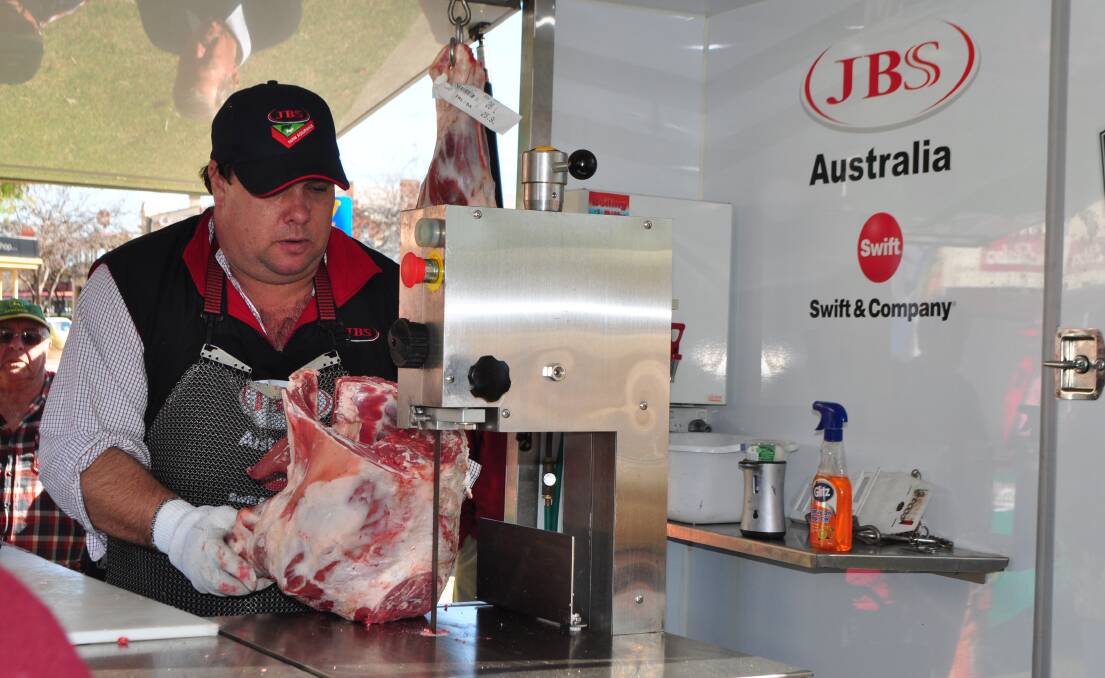
Victorian agricultural market analysts have raised concerns about a prolonged shutdown of the state's largest abattoir, JBS' Brooklyn plant.
Subscribe now for unlimited access to all our agricultural news
across the nation
or signup to continue reading
JBS declined to give a timeframe on reopening, after the plant was closed when several staff tested positive to coronavirus.
A JBS spokeswoman also confirmed the company had also suspended sales to China, from its Brooklyn plant, as a "precautionary measure".
On Thursday, 37 cases had been linked to Somerville Retail Services meat packing plant, in Tottenham, while JBS' Brooklyn abattoir had recorded 29.
Read more:
Achieve Ag Solutions Nathan Scott said his biggest concern, over the closure of Brooklyn, was the uncertainty it caused.
"It's another shockwave to go through an industry that has already seen reduced competition, in the lamb market," Mr Scott said.
"This brings the potential for a reduction in capacity.
"Uncertainty is never a great thing for any market."
He said it was fortunate the plant was probably not processing many lambs, at the moment.
But that would change in August and September as producers would start to turn off spring stock.
And Thomas Elder Markets analyst Matt Dalgleish said he wasn't surprised at the outbreak at Brooklyn, given the employees worked in close contact with each other.
"We saw a similar scenario in the United States with the pork and beef processing sectors - once it got in there, it didn't take long for it to get around the workplace."
He said JBS and the other processors had done the right thing, by shutting down.
But he said it was a tough time for processors, as outlined in TEM's margin modelling.
"They are not making much money at the moment, in fact they are in negative territory, and this will be an additional burden," Mr Dalgleish said.
"It's not a good thing."
"At the end of the day the processors, and the profit of processors, underpins the whole of the system, they are the final buyer," he said.
May was traditionally the toughest time for processors, when, historically, margins were at their tightest.
"Looking at revenue versus costs, you are getting a negative figure - it dipped into negative in February, and was negative $137 for June," he said.
"Once you get beyond $100, it's starting to get a bit extreme."
Analysts had been seeing very high domestic prices for slaughter stock, which was feeding into higher costs.
That was coupled with the disruption to global exports, due to coronavirus.
He said another issue was a reputational risk, coming after China banned imports from several Australian meatworks.
"Now you have this problem of coronavirus in a handful of abattoirs," Mr Dalgleish said.
'If it's prolonged and extensive, it raises concerns as to the reputational damage of Australia not being a reliable supplier."
He said it might also play into Australia's reputation as 'clean and green" with a strong safety record on products it exported.
"Its another avenue they (the Chinese authorities) can look at to find fault."
Victoria University public health expert Professor Max de Courten said the operators of abattoirs and meat processing plants must continue to employ strict hygiene and social distancing rules.
He said meatworks fitted the criteria of a high-risk working environment, in which coronavirus could spread rapidly.
"They are breeding grounds for super spreaders," Prof de Courten said.
Plants were humid, often had poor ventilation, and employees worked close together, for long periods.
While it was easy to say workers should wear masks and practice social distancing, in reality, that wasn't always possible.
"If the government shuts down the whole place, companies need to find ways of maintaining some level of operations, consistent with those protective measures," he said.
"There is nothing more magic than good infectious disease control measures, the principal is to reduce the potential spread of the virus."
He said workers could unwittingly pass on coronavirus when they did not realise they were infected.
"You can have the virus, and for a couple of days you feel fine and you go back to work, but you are spreading it."
He said people should not be quick to blame those who had spread the virus unwittingly.
"There is no way, in the beginning, that you would know you have picked it up."
Deep cleaning of facilities was very effective and could see them reopened in two to three days after completion.
"It's the staff that need to be quarantined." Prof de Courten said.
"Have you signed up to Stock & Land's daily newsletter? Register below to make sure you are up to date with everything that's important to Victorian agriculture.


